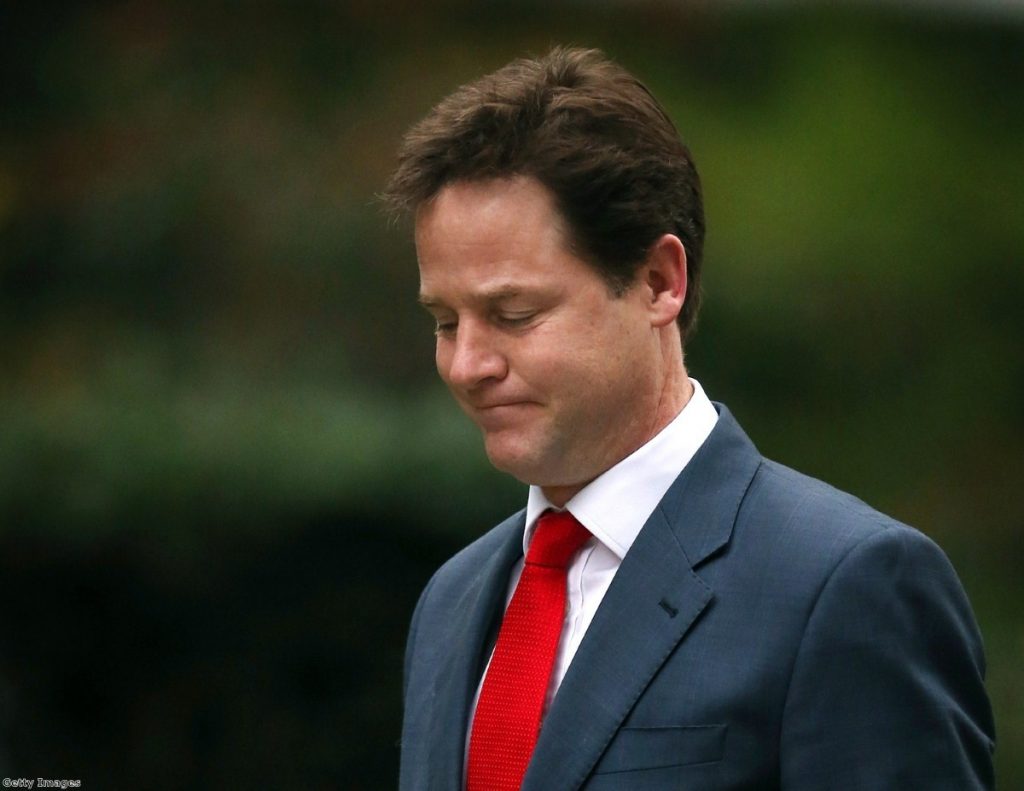The civil liberties backlash: Govt blinks first on snooping and secret courts
Nick Clegg acted to counter criticism that he was weak on civil liberties last night, with dramatic interventions on the internet snooping proposals and plans for secret courts.
The Liberal Democrat leader, who entered Downing Street promising to undo Labour's more draconian counter-terror laws, signalled a retreat on Home Office demands for access to peoples' Facebook and Skype activities, directly contradicting statements from the home secretary.
"We are not simply going to bounce new legislation through parliament. We will publish draft clauses and subject them to proper pre-legislative scrutiny," he told the Guardian.
"The route to legislation will be a deliberative, open one which can be subject to real stress testing and scrutiny. That is what proper pre-legislative scrutiny is all about."


The comments mean the snooping proposals will not feature in the Queen's Speech and will instead only be published in draft legislation form.
"The security establishment will always say they need new powers tomorrow," he continued.
"It is the role of the politicians and parliament to make sure that requests for new powers, updated powers, made by the security services, are properly scrutinised and checked.
"In a rough and ready way, they are being played out semi-publicly now. You always have this push and pull. Under the last government, not only did they give everything the police and security services ever asked for, they gave them more than they needed."
The comments quickly took the fire out of civil liberties campaigners, and just in time to nip a potential Liberal Democrat rebellion in the bud. Sixteen Lib Dem MPs, including home affairs committee member Julian Huppert, signed a letter holding their party leadership to its civil liberty principles.
David Cameron insisted there was a need to deal with online voice communication technology like Skype during a speech in London today, although he confirmed the government would balance that requirement with civil liberty concerns.
"As I see it there are some significant gaps in our defences – because of the moving on of technology, so you have people making telephone calls through the internet rather than through fixed line – but also gaps in our defences because it isn't currently possible to use intelligence information in a court of law without sometimes endangering national security," he said.
"I want us to plug those gaps. But let's be clear – we will do it in a way that properly respects civil liberties. We will consult, we will listen to the arguments, but it is very important that the government makes progress on these vital agendas.
"I absolutely believe that you can achieve both security and a respect for liberty, but it means having to make difficult decisions."
Meanwhile, Mr Clegg opened up a new front in a letter to the national security council – chaired by David Cameron – in which he expressed serious concerns about Ministry of Justice plans for secret courts in which intelligence information could be heard.
The move effectively splits the government position and opens up a potential schism between Mr Clegg and justice secretary Ken Clarke, two close political allies who are currently assessing the need for a British bill of rights together.
The letter followed a highly critical report by the joint committee on human rights which found "no compelling evidence" to defend the coalition plan, which they branded "inherently unfair".
If implemented the plans would constitute a "radical departure from long-standing traditions of open justice", MPs and peers found.
The committee also said that despite claims from Mr Clarke that the plans would be specific and rarely used, the new powers were, in fact, "very broad in scope".
Speaking on the Today programme, Mr Clarke said the changes were necessary so courts could take sensitive intelligence into account.
"The problem is you can't have your British intelligence officers giving evidence in open court, saying my source is X, this is the technology we use, we know this, and at the moment this evidence just isn’t given," he said.
"Now I would like, actually, the judge to be able to take that evidence into account, but it’s got to be in some closed procedure.”
Tory MP and civil liberty campaigner David Davis told BBC Radio 5 Live: "Secret agencies naturally do not want to come out in a public area, they don't want to people to know what they are doing. Very often that is used to cover up embarrassment and that is the real problem."












